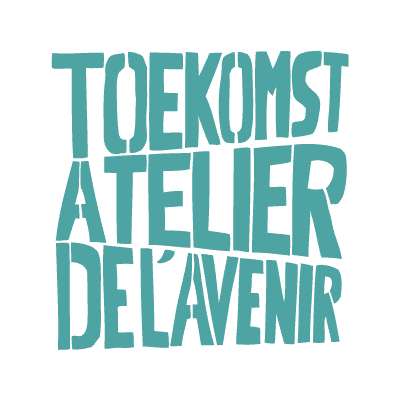What is TADA?
TADA in a nutshell
ToekomstATELIERdelAvenir (alias TADA) is 100% bilingual (NL/FR) non-profit organisation that provides supplementary, voluntary, motivational and society-oriented education to vulnerable teenagers from disadvantaged neighbourhoods like Molenbeek.
Over the course of several school years the TADA pupils discover diverse aspects of society in weekly experiential classes. Every Saturday the TADA pupils receive courses from inspiring professionals – volunteers – from all areas of the labor market, for example entrepreneurs, engineers, chefs, lawyers, or journalists. Through these courses on topics such as law for kids, TADA shows the teens what ‘later’ may have in store for them.
By doing, these teenagers not only get to know the greater society and the labor market, but they also discover themselves: what they’re good at and what they like. During the long term coaching process offered by TADA, the students develop a critical eye as well as their horizontal skills, such as creativity, discipline, and a sense of initiative. TADA also enlarges their horizons and their knowledge about and connection with society.
Objectives
TADA stimulates its participants to:
- broaden their (future) perspectives
- become motivated, resilient individuals with self-knowledge and self-esteem
- develop their horizontal or life skills
- deepen their knowledge of and connection with the society they live in.
By inspiring teenagers in a safe environment that opens the door to the world, TADA seeks to empower its young participants and prevent demotivation and its negative consequences (such as learning fatigue, early school dropout, delinquency, unemployment, extreme radicalisation).
By encouraging an intergenerational and intercultural dialogue between different ‘worlds’ that wouldn’t meet under ordinary circumstances, TADA also seeks to contribute to increased integration and social cohesion.
Our reasons for being
The development of each child is influenced by numerous factors, also outside the school and the family. On the one hand, you have determinants like access to tools bringing you general knowledge, like media, books, the internet or matters such as culture or sports. On the other hand, for the human growth process to bloom, one needs positive eureka-moments that amaze or motivate you, so that you keep on going/learning. The size or the quality of the motivational network around the child, or its access to role models, also determine the reach of children's dream in general.
Socially vulnerable children often lack several of these matters.
They know for instance few role models with diverse professional backgrounds they can question about society, labor market or ‘later’.
TADA exists to empower these teens in their all-round-character-development.
With the slogan - "It take a village to raise a child" - in mind, TADA opens up the world of these teenagers by bringing them in touch with role models, nearly every single week. Through its approach TADA feeds curiosity. TADA strengthens its young participants to avoid demotivation and its consequences (like school dropout, delinquency, extreme radicalisation, unemployment).
By allowing an intergenerational and intercultural dialogue, TADA equally builds bridges, in polarising times of alienation.
TADA implicitly shows that civil society involvement in education is valuable and wanted for.
Origins of TADA?
TADA was launched in the most underprivileged areas of Brussels in 2012-2013. Unfortunately, inequality in education has been a sincere challenge in these areas for multiple years and TADA wishes to give a boost to traditional schools active here.
The concept for TADA has already proven its success over the last 19 years in The Netherlands at ‘IMC Weekendschool’, who has already reached several thousand socially vulnerable teenagers with this internationally rewarded approach, since 1998.
Sofie Foets and Heleen Terwijn - the respective founders of TADA and ‘IMC Weekendschool’ - met in the European Parliament in May 2011 when Heleen Terwijn spoke as an expert at the conference ‘Best practices in Europe in the field of informal education for disadvantaged youth'. Sofie Foets was at the time working in the European Parliament as a policy advisor on various themes, including education.
